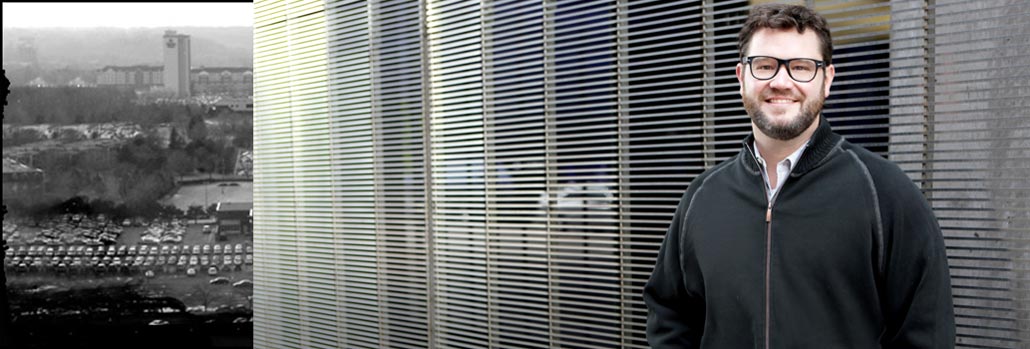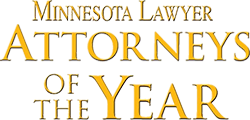Minnesota DWI Information
If you have been charged with DWI, please review the following information and do not hesitate to seek immediate legal counsel from an experienced DWI defense attorney.
What is Vanessa's Law?
Passed in 2004, this law defines recommendations and punishments for underage alcohol-related violations, including the suspension of an offender's license until age 18 in the event of a crash-related moving violation or an alcohol/controlled substance-related violation.
How drunk does someone have to be before they can be convicted of driving under the influence?
In Minnesota, any blood alcohol level of .08 or higher will subject you to conviction. However, your driving skills are affected from the first drink of alcohol. Your ability to pay attention, react, see clearly, maintain coordination, and make good choices are impaired with each drink. If the state can prove your ability to drive was impaired by alcohol you can be convicted even if your blood alcohol concentration was under the “legal limit”.
How many drinks can I have before being over .08?
It is not the number of drinks alone that determines how high your blood alcohol levels are. Wine, beer, mixed drinks and hard liquor have different percentages of alcohol so it's more important to focus on how much total alcohol you have consumed over a certain period of time. Additionally, your impairment and your blood alcohol levels are influenced by gender, age, weight, amount and type of food you have eaten, medications, and other factors.
Do I have to take a blood, breath, or urine test if asked to do so by the police?
The answer is almost always “yes” because refusal is a crime that is often more serious than testing above the legal limit. If you refuse to take a test following an arrest, your license may be revoked for at least one year and your vehicle may be forfeited if you have a prior offense.
I tested under the legal limit and I'm still charged with DWI, is that legal?
The answer is "yes." A person can be charged and convicted even if their blood alcohol concentration is below the legal limit if the alleged improper driving conduct establishes that the driver is "under the influence" of alcohol.
How can the police find out whether a driver is under the influence?
Police typically use three methods of determining whether a driver is impaired:
- Observation. A police officer will pull you over if you are swerving, speeding, driving too slowly, or failing to stop.
- Sobriety tests. If you have been pulled over and the police officer suspects you have been drinking, you will probably be asked to get out of the car and stand on one leg, walk a straight line or recite the alphabet. If you do not do well on the tests, the officer may arrest you or ask you to take chemical tests to determine your blood-alcohol level.
- Blood-alcohol level. The measurement of alcohol in your blood can be taken directly by drawing a blood sample or it can be calculated by applying a mathematical formula to the amount of alcohol in your breath or urine.
What are the legal and financial consequences of getting a DWI conviction?
THE FIRST DWI OFFENSE
If your blood alcohol reading on your first DWI offense was less than .16%, it is usually a Misdemeanor punishable by a maximum fine of $1,000 and jail time of a maximum of ninety days, or both. You will likely lose your license to drive for at least 90 days and the court may order you to attend an alcohol treatment program or at a minimum, a seminar or class on how alcohol affects your body and your ability to drive. If your alcohol concentration was at .16 or more you may lose your license for up to one year and be subject to plate impoundment.
The first offense may become a Gross Misdemeanor (punishable by a maximum fine of $3,000 and a maximum jail time of a year, or both) under certain circumstances, which include having a child in the car and having a blood alcohol content of over .16 percent.
THE SECOND OFFENSE
The second offense in ten years is a Gross Misdemeanor with a maximum penalty of $3,000 and a year in jail, or both. At a minimum, you will have to spend 30 days in jail or eight hours community work service for each day less than 30 days that you are ordered to serve in jail. The police will probably impound (take) your license plates and perhaps even your car. You will likely lose your driving privileges for a minimum of one year.
THE THIRD OFFENSE
If you have been driving while impaired within ten years of two prior DWI offenses, you will either have: 1) a minimum of 90 days in jail, at least 30 days of which must be served consecutively in a local correctional facility or 2) a program of intensive probation which will include serving at least six days consecutively in a local jail. The police will likely take your car and you will need a lawyer's help to deal with the forfeiture of your vehicle.
THE FOURTH OFFENSE
If you are convicted of driving while impaired within ten years of three prior offenses, you are convicted of a Felony. Current laws require that you are sentenced to prison for at least three years and given a fine up to $14,000. If the judge decides to reduce the three-year term, there is still a mandatory minimum sentence of 180 days of incarceration, at least 30 days of which must be served consecutively.
How long will I lose my driver's license?
The length of revocation or cancellation of your driver's license depends on many factors including your blood alcohol concentration, whether or not you took the test, the number of prior offenses, your age, and the length of time between offenses. Typically, if it is your first offense and your blood alcohol concentration was under .16, your license will be revoked for 90 days. Call us for further information about your case.
When can I get a work permit (limited license)?
Again, a person's eligibility for a work permit (limited license) depends upon numerous factors including, but not limited to, blood alcohol concentration, number of prior offenses, and whether or not you took the test. Typically, if it is your first offense and your blood alcohol concentration is under .16 then you can apply for a work permit 15 days after the expiration of your temporary license (22 days from the date of your arrest). If you tested at a .16 or more it is likely that you will have to go on an ignition interlock device in order to drive. Click here https://dps.mn.gov/divisions/dvs/programs/mn-ignition-interlock/Pages/default.aspx for more information about interlock. Call us for more information about your case.
How do I get my license reinstated or get a work permit?
Generally, in order to have your license reinstated, or to get a limited license, you must follow the requirements established by the Department of Public Safety. If it is your first offense and you tested under a .16, you must: (1) pay the reinstatement fee of $680.00, (2) make an application for a new license, and (3) take a written test on chapters 7 and 8 of the Minnesota Driver's Manual. Click here to see the driver's manual: https://dps.mn.gov/divisions/dvs/Pages/default.aspx
Does it matter which attorney I choose?
Based upon the points listed above, it is very important for you to hire an attorney that you feel comfortable with. The attorney you choose can make a significant difference in the outcome of your case. We believe our firm is highly respected within the legal community. The results our firm is able to obtain and all of our satisfied clients are the best testimony we have to your consideration of our law firm.
















